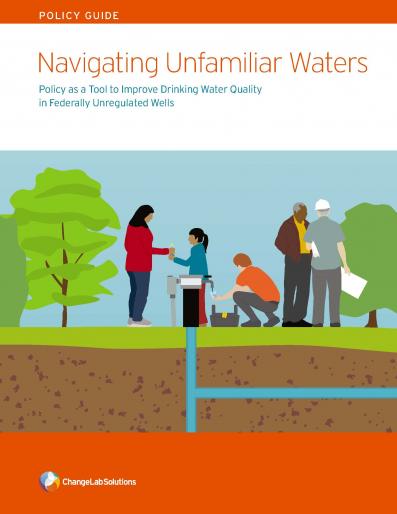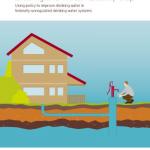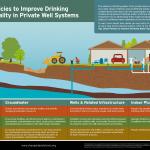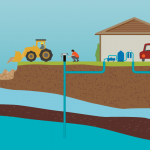Navigating Unfamiliar Waters
Using policy to improve drinking water quality in private wells
Approximately 12% of the US population draw their drinking water from water systems that are not regulated by federal law. These residents could be exposed to harmful bacteria, nitrates, or arsenic without their knowledge, leading to serious health consequences for families and entire communities.
How can state and local policymaking support safer drinking water in federally unregulated wells? Jurisdiction-wide policies play an important role in ensuring that everyone has access to safe drinking water. Possible approaches include the following:
- Raising awareness about the need to test well water quality
- Facilitating information sharing about wells — for example, disease reporting and surveillance
- Protecting water quality through standards for groundwater management, testing, and plumbing
- Providing standards and resources on new well construction
- Licensing and training businesses and professionals who work with private well water systems
ChangeLab Solutions developed this guide for environmental and public health professionals who are starting to think about using policy to promote safer drinking water in federally unregulated wells. This how-to resource supports the policymaking process and can help practitioners facilitate partnerships with decisionmakers, business leaders, local government agencies, and other stakeholders.
This publication was supported by Cooperative Agreement Number NU38OT000141 awarded to ChangeLab Solutions and funded by the Centers for Disease Control and Prevention.




